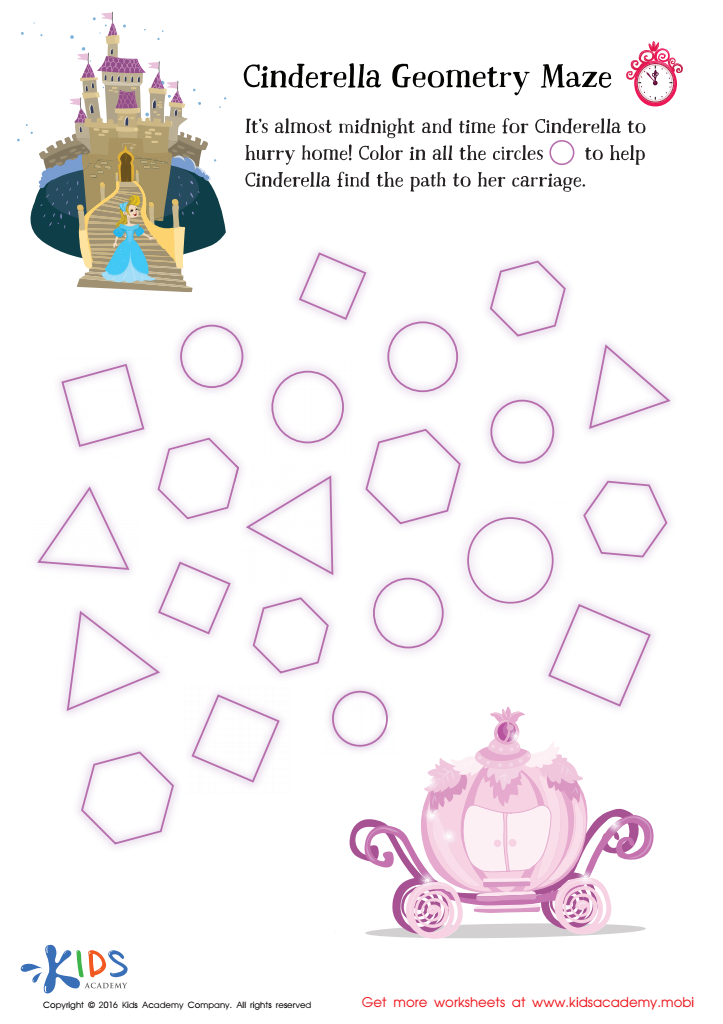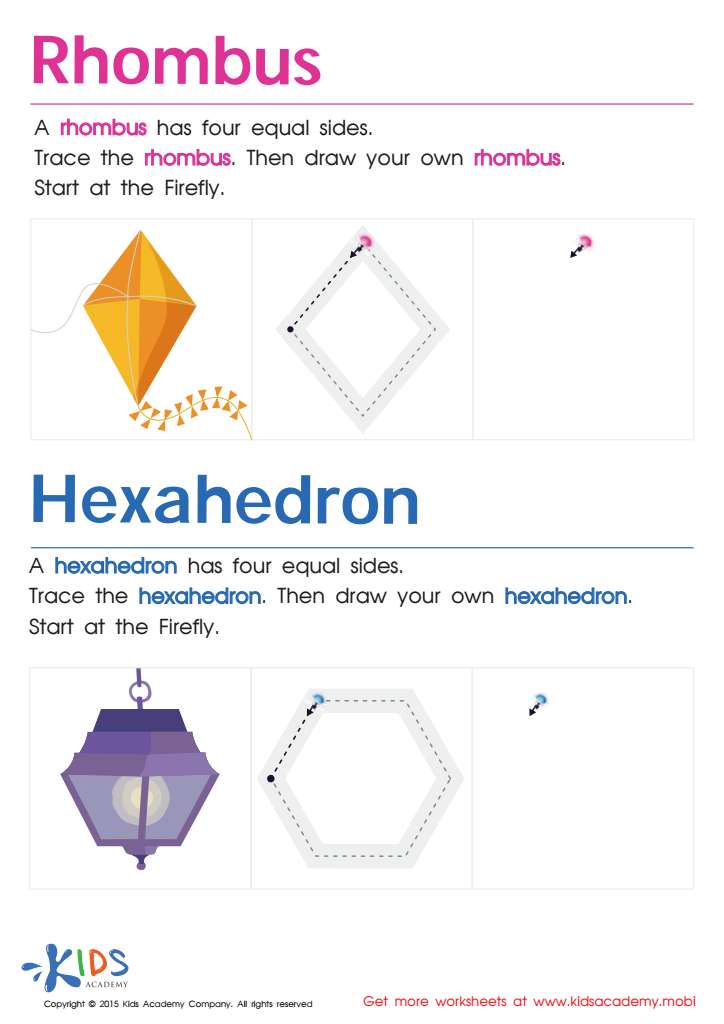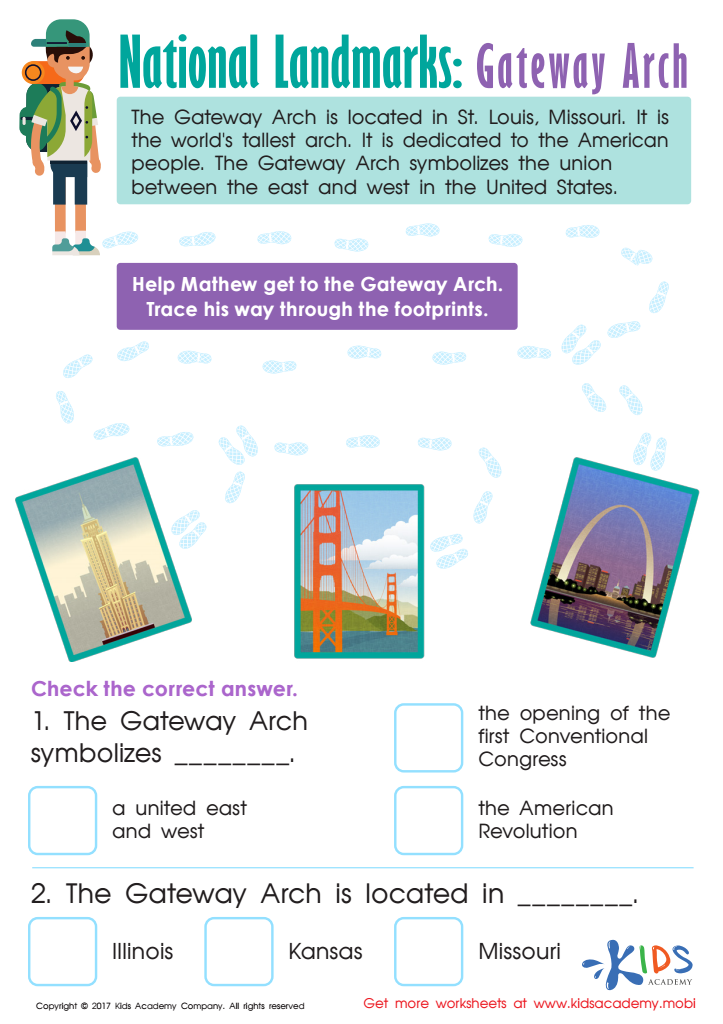Geometry understanding Worksheets for Ages 4-8
3 filtered results
-
From - To
Unlock your child's potential with our engaging Geometry Understanding Worksheets for Ages 4-8! Designed to spark curiosity and a love for learning, these worksheets help young minds grasp essential geometric concepts through fun, interactive activities. From recognizing shapes to understanding symmetry and spatial relationships, our expertly crafted worksheets encourage critical thinking and problem-solving skills. Perfect for both classroom use and at-home practice, they provide a strong foundation for future math success. Empower your child today with essential geometry skills in a way that's enjoyable and effective. Visit our website to explore the full range of resources.


Cinderella Geometry Maze Worksheet


Draw a Rhombus And a Hexahedron Printable


Gateway Arch Printable Worksheet
Understanding geometry is crucial for children ages 4-8 as it lays the foundation for essential cognitive development and practical life skills. At this age, children are incredibly receptive and their brains are developing rapidly, making it an ideal period for nurturing spatial awareness and critical thinking through geometric concepts.
For parents and teachers, fostering geometry skills means helping children recognize shapes, sizes, patterns, and positions—key components that directly influence their ability to make sense of the world around them. This spatial awareness not only supports everyday tasks, like navigating spaces and recognizing objects, but also enhances problem-solving abilities and logical thinking.
Geometry nurtures cognitive skills such as memory, attention, and the ability to visualize spatial relationships. These skills are not only fundamental in subjects like math and science but also in arts and crafts where symmetry, balance, and structure are important.
Moreover, understanding geometry aids in developing fine motor skills through activities like drawing shapes and creating patterns. It prepares children for future learning, builds their confidence in math, and makes complex concepts more accessible and less intimidating.
In essence, caring about geometry understanding in early childhood sets the stage for a well-rounded, confident learner, ready to tackle more advanced mathematical concepts and enjoy a higher level of academic and personal success.
 Assign to My Students
Assign to My Students
















